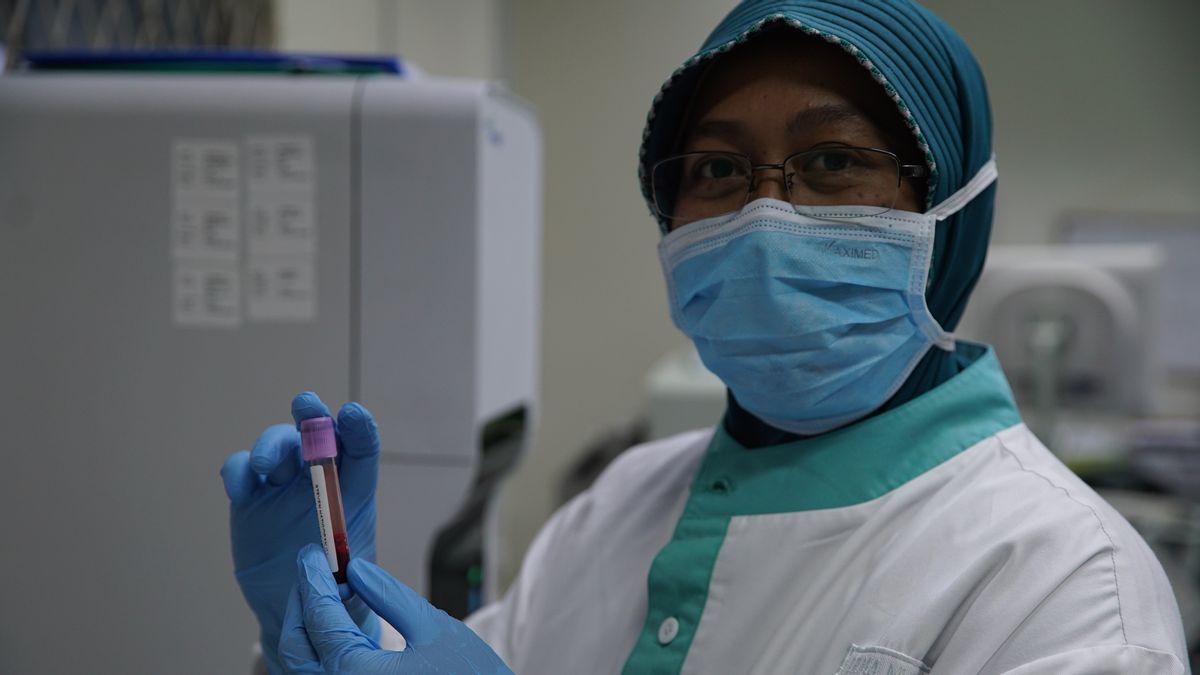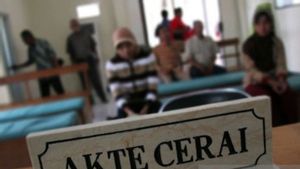JAKARTA - The spread of the new Corona virus or COVID-19 has an impact on the anxiety and fear of the world community, including in Indonesia, which to date has recorded six cases. The first time this case was announced, the community immediately flocked to buy up necessities, ranging from basic necessities, masks, to hand sanitizers. The last two necessities have even increased in price.
However, behind the concerns over the COVID-19 outbreak, there is another side that is not widely known. The story of the people who are at the forefront to ward off or even heal the sufferers. Some time ago, the VOI team visited the Sulianto Saroso Infectious Disease Hospital (RSPI). There, we met a number of medical personnel who were at the forefront of fighting COVID-19.
It's not easy. We have to fulfill a number of procedures to get official permission. Our efforts to get permission have paid off. The hospital allowed us to chat with doctors and nurses who handled positive patients and suspected COVID-19. For about an hour we waited for that conversation, in a room with a long wooden table and chairs.
Finally, a veiled woman came into the room. We shake hands. The woman's face looks fresh. Her lips were decorated with red lipstick and powder. He made up himself. To us, he introduced himself. Widya, his name. She is a nurse in the isolation room at RSPI Sulianti Saroso. He apologized for having to take a shower before meeting us.
Widya (Nurse)

Widya sat opposite us. The story begins. The first thing Widya tells us about his feelings is to spearhead the fight against the virus. He may be the person whose chest is the most swollen. However, he is also the most at risk of contracting it. Widya is well aware, therefore he is very disciplined in undergoing various security procedures, including protective equipment.
In addition, what is very important in the fight against COVID-19, according to Widya, is knowledge. By gathering information, everyone will find ways to avoid or even fight the spread of the virus. Or at least, face it the right way: don't panic excessively. "So, I thought, when I had followed all the procedures, God willing, I would be healthy," Widya.
Widya himself, as he said at the beginning of the meeting, must be more diligent in bathing every time he leaves the isolation room and comes into contact with patients. Our curiosity grew bigger, evaporating the chill that we previously felt throughout the room. Widya continued his story. She said this was her fifth year living as a nurse. During that time he also faced various kinds of epidemics.
He has also faced viruses that are scientifically more dangerous than COVID-19. Call it SARS to bird flu. Widya knows, COVID-19 is not as dangerous as previous experiences. We know that the cure rate for COVID-19 is fairly high. "Alhamdulillah, I'm healthy." There was a smile on the corner of Widya's lips. I don't know, but we all laughed after that discussion.
Then, we continued with the next question, what was the response of the family when they heard that they had to take care of the COVID-19 patients. Widya said that there was no negative response expressed by his family. However, he still has to give understanding to all members of his family. "The people at home just told me to be careful. That's all. Alhamdulillah, they understand because this has become my job and rest assured that we are protected here," he said.
Widya's answer provoked us to look around to determine how reasonable Widya's confession made. Honestly, Widya is probably right. The atmosphere in the isolation room is not as scary as we imagine. There, the patient remains active. In fact, the interaction and communication between patients and the medical team is fairly good. There is no excessive fear between them. Jokes were thrown between them.
"So, if a patient is in strict isolation, there must be tremendous anxiety. Especially in isolation, alone, family members are not allowed to visit them. Then, they are mostly anxious and sad. So, when we enter the patient room, we will always provide motivation, "We joke around normally. The important thing is that the patient can feel comfortable, not stressed by the disease," said Widya.
At the end of the conversation, Widya said, nothing is more important than healing a patient. For him, the healing of the patients is a priceless payoff. "When a patient comes out of our room with a word of gratitude, healthy, a smile comes out of our room, that is the happiest thing for us, health workers," Widya.
Doctor Yuki (Pulmonary Specialist)

About 15 minutes after Widya left the room, a woman wearing a hijab came back into our room. This time, Yuki, a pulmonary specialist. We had a chance to joke around first to break the ice before asking him to tell a story.
The conversation with Yuki was much more relaxed and filled with laughter. Like Widya, full family support is an important factor for Yuki to carry out her task of dealing with COVID-19. And it was easier for Yuki, because his family had a medical background.
Like Widya, COVID-19 is not the most dangerous virus for Yuki. COVID-19 is not as deadly as the MERS virus that Yuki previously faced several years ago. Again, referring to the relatively low mortality rate compared to other viruses.
"Fortunately, my family's background is all medical. So we already know how it is transmitted. We only know that the mortality rate is low. So, people in the house are not worried. It's safe, because we have faced the MERS virus, which has a higher mortality rate," said Yuki.
"So, as long as we make sure the family is that our patients are treated in a different room, a tight isolation room with negative pressure. So it is very, very small, we will come out carrying this virus," he continued.
In our conversation, Yuki also talked about the closeness between nurses and patients. With a lack of time due to being obstructed by very tight protective equipment, conversations often occur during the bathing process. Nurses and patients are sometimes seen singing together to comfort each other and kill boredom.
"So the conversation is maintained, the patient doctor's communication. It just doesn't take long. So the patient understands better. Because if we are doctors, there is nothing we can see in one room, when we try to accompany them to take their minds off the disease, so tell family stories, nurses- my nurse when bathing sang along, "he said.
Yuki's statement strengthens Widya's message, that there is no need to panic excessively in facing COVID-19. Because, there is an opportunity to beat COVID-19. Big or small opportunities depend on how we deal with them.
The English, Chinese, Japanese, Arabic, and French versions are automatically generated by the AI. So there may still be inaccuracies in translating, please always see Indonesian as our main language. (system supported by DigitalSiber.id)









